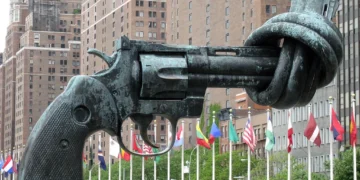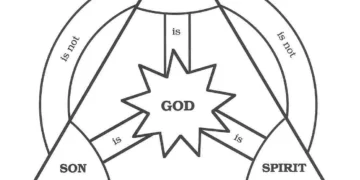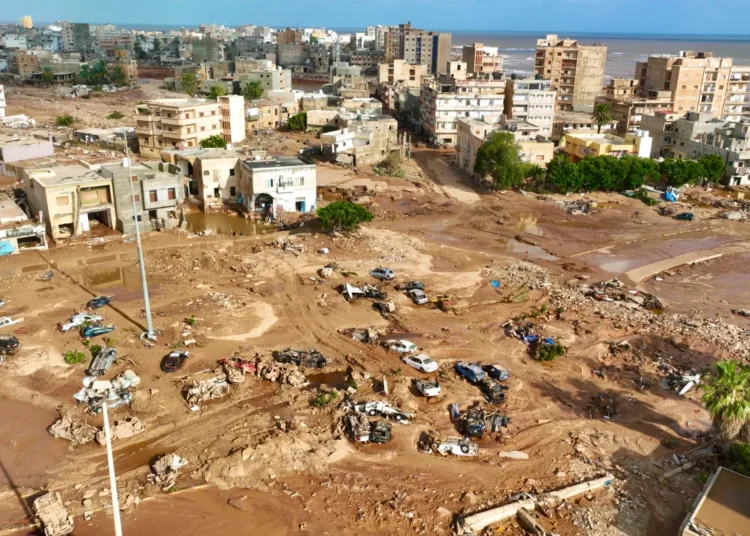In recent years, Libya has experienced an alarming increase in devastating floods, leaving a trail of destruction and claiming countless lives. The intensifying climatic shifts caused by global warming are believed to be largely responsible for these catastrophic events. As the ominous consequences of climate change continue to reveal themselves, parallels between these floods and apocalyptic visions cannot be ignored. This article explores the link between climate change, the increasing frequency of floods in Libya, and the call for urgent action to combat the challenges ahead.
11,300 Death Toll in September, 2023
According to a recent UN report, the death toll from severe flooding in Derna, a coastal city in eastern Libya, has now reached a devastating number of 11,300. Tragically, the search efforts are ongoing, and it is expected that more victims will be discovered. Additionally, outside of Derna, 170 individuals lost their lives as a result of the flooding, as reported by the United Nations Office for the Coordination of Humanitarian Affairs (OCHA). Furthermore, within Derna itself, there are still at least 10,100 people who remain unaccounted for after the disaster.
The Wrath of Climate Change Unleashed
Libya has historically witnessed arid and dry weather conditions, but climate change has disrupted this balance, triggering unprecedented floods across the nation. The combination of rising sea levels, extreme rainfall, and inadequate infrastructure has compounded the effects of the changing climate.
In 2019, the southern city of Sabha faced one of the worst floods in decades. Torrential rain wreaked havoc, displacing thousands of people, washing away homes, and devastating agricultural lands. Wadi Touat, a usually tranquil river, transformed into a raging force, engulfing entire neighborhoods and disrupting daily life in its wake. The catastrophic floods left behind a haunting landscape of destruction and despair.
Climate Change and the Apocalypse
The alarming frequency and intensity of these floods draw striking parallels with apocalyptic tales from various traditions. Flood narratives, such as the biblical story of Noah’s Ark and Mesopotamian legends, hold a common thread of global destruction brought about by rising waters. While we must approach such comparisons with caution, the images of submerged cities and desperate survivors bear a resemblance to these tales of doom.
The scientific community has long warned about the consequences of climate change, and the recent floods serve as a stark reminder of the urgency to address its root causes. Climate change-induced extreme weather events, like the floods in Libya, are not isolated incidents but part of a broader pattern plaguing the planet. Rising temperatures disrupt weather patterns, leading to more frequent and intense storms, heatwaves, and flooding, affecting vulnerable regions like Libya disproportionately.
In the face of such overwhelming natural disasters, it is crucial to heed the warnings and act collectively to combat climate change. Only through sustainable practices and reduced greenhouse gas emissions can we prevent further exacerbation of these catastrophic events.
A Prayer for the Victims
In the wake of these devastating floods, it is important to offer our thoughts and prayers to the victims and their families who have suffered immeasurable loss. Let us stand in solidarity with the Libyan people, extending our support to those who have lost their homes, livelihoods, and loved ones.
As we witness the destructive power of nature, let us also recognize our responsibility to protect our planet. May this tragedy serve as a wake-up call, urging governments, communities, and individuals to take meaningful action towards mitigating climate change and its consequences. Together, let us strive for a future where disasters like these become a distant memory.
Dire Consequences Awaits Us
The floods ravaging Libya are not isolated incidents but alarming manifestations of the impact of climate change. The devastation caused by these floods evokes images of apocalyptic visions, serving as warnings of the dire consequences that await us if we fail to address climate change urgently.
In this critical moment, we must harness our collective efforts to reduce greenhouse gas emissions, strengthen infrastructure, and prepare for climatic challenges. Through sustained commitment and international cooperation, we can strive to minimize the destructive impact of climate change and build a more resilient future for all.
Our thoughts and prayers go out to the victims affected by these floods, and may their suffering serve as a catalyst for change. Let us unite in prayer, action, and determination to safeguard our planet and protect future generations from the impending climatic calamity.
















































































